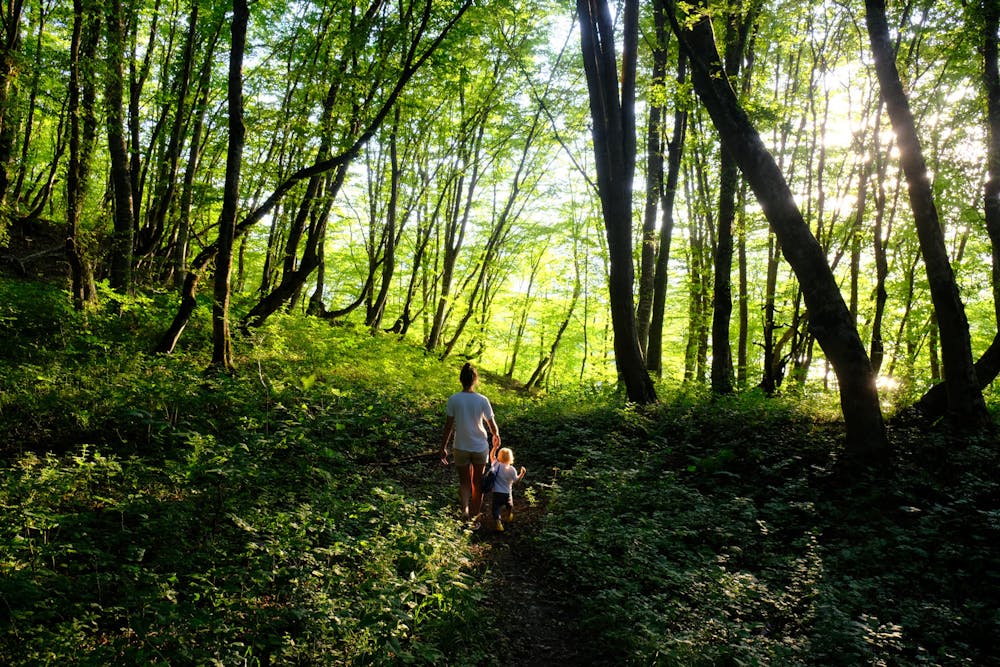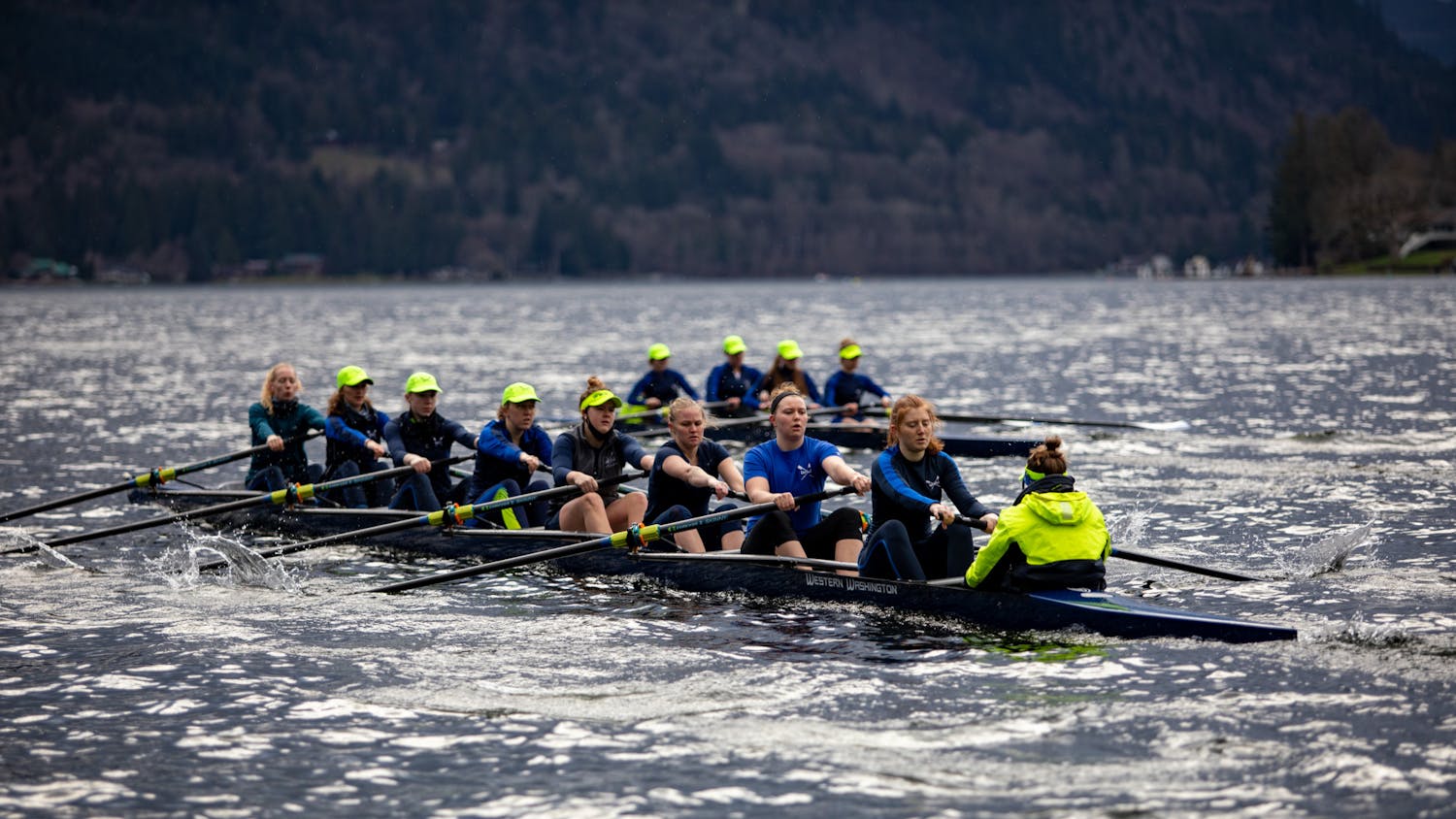Perhaps it was primal instinct, or maybe it was cabin fever. Whatever the reason, COVID-19 has driven a record number of Washington residents to seek solace in nature — and the benefits people are feeling are backed by science.
Colton Whitworth, a public affairs officer for U.S. Forest Service’s Region 6, an area of land which includes the Mount Baker-Snoqualmie National Forest, provided statistics regarding outdoor activity spikes during the pandemic.
“One example would just be Christmas tree permit sales [to individuals] over the winter,” he said. “We typically sell about 6,000 Chritsmas tree permits — we’ve done that number for the last 10 years each year, pretty much straight across the board.”
However, the recorded number of tree permits sold in winter 2020 was far greater than previous years. According to Whitworth, over 20,000 permits were sold.
“It didn’t just double,” Whitworth said. “We’re seeing those kinds of numbers on trails and everywhere else — it’s not a normal increase due to population size or population increase.”
While the lack of safe alternative activities during a global pandemic forced people out of bars and into their cars in last summer’s great American road trip revival, it turns out that psychology played an influential role in increasing Americans' time outside.
“With the COVID-19 pandemic, you have increased instances of people becoming depressed and having much higher rates of anxiety,” said Dr. Sandra Slater, professor and director of the public health bachelor's program at Concordia University in Wisconsin.
The average American spent an estimated 93% of their day inside, according to the 2001 edition of the National Human Activity Pattern Survey. During COVID-19, that number may have trended downwards.
“Ecotherapy” was first coined by Howard Clinebell, a Methodist Minister and professor in pastoral counseling when he wrote the book on the subject in 1996. Often called “nature therapy” by therapeutic recreation specialists, the emphasis in treatment is similar to that of an older Japanese practice called “shinrin-yoku” — which translates to “nature bathing.”
According to Dr. Qing Li, president of the Japanese Society of Forest Medicine, “shinrin-yoku” does not emphasize physical activity in nature. Instead, it centers on the sensory “bath” of being in a wilderness environment, taking in sights, smells and sounds — even the physical sensation of a stroll through the woods.
An appreciation for the beauty of Washington’s environment seems to be the reason for an influx in Washington residents participating in outdoor activities in the past year, according to Dr. Kristen Chmilewski, associate professor in the Rehabilitative Studies department at Western Washington University.
“I feel like so many people who live in the [Pacific Northwest] intuitively know the benefits of being out in nature,” Chmilewski said. “Nature therapy uses those benefits to improve [an] individual’s mental health and personal growth.”
Nature therapy is not a new practice, though the American implementation differs from that of the Japanese “shinrin-yoku,” often focusing more heavily on physical exercise.
Craig Hospital, a facility specializing in spinal cord and traumatic brain injuries in Englewood, Colorado, has employed elements of nature therapy in their broader practice of therapeutic recreation for over 40 years. In the Pacific Northwest, volunteers with charities like Outdoors for All have helped make outdoor recreation and rehabilitation possible for those with physical and mental disabilities since 1979.
The success of similarly established programs as well as further research into the benefits of outdoor recreation for individuals in all walks of life have yielded impressive results. Ralf Buckley, chair of Ecotourism Research at Griffith University in Queensland, Australia, described the benefits of outdoor therapies in an article published in Frontiers in Public Health in May 2018.
“While certainly not a panacea, exposure to nature and outdoor activities can improve mental health,” he said. “Nature exposure can provide a wide range of mental health benefits related to attention and cognition, memory, stress and anxiety, sleep, emotional stability, and self perceived welfare.”
During the COVID-19 pandemic, even outdoor therapy professionals wound up taking their own medicine — literally.
“I’ve often joked that Zoom ‘broke’ me, and places like Fragrance Lake, Oyster Dome, and Lake Padden put me back together,” Chmilewski said. “A nice hike helps me to clear my head, refocus my priorities and reframe those stressors.”
Chmilewski believes that COVID-19 has given people the chance to see which activities bring meaning and value to their lives.
“I truly believe the effects of this reflection will continue on past the pandemic,” she said.
Rowan Forsythe is a visual journalism major and junior at Western. Convinced he disliked writing until his sophomore year, Rowan has now covered topics from homelessness to school sports. You can reach him at rforsythe.thefront@gmail.com, and view his photography portfolio here.






